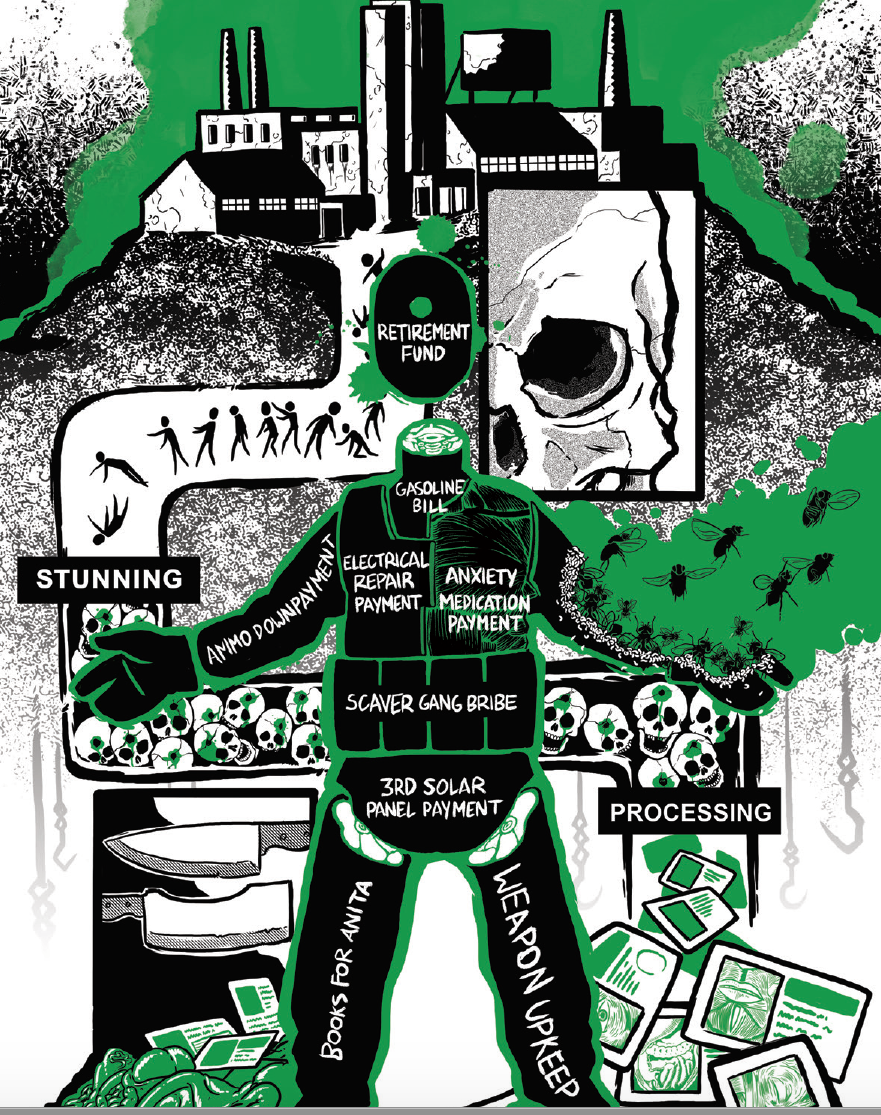Ukrainians were starved to death under Stalin. Most Ukrainians welcomed the Germans
It is weird how more people died during the Nazi occupation than when Stalin ate all the grain. I assume that they were just so dowtrodden that they couldn't handle all the fair treatment and died from too much freedom.
Don’t you know how Megan Thee Stalin went “Num, num, num, num, eat it up” then ate all the grain?
Plus the brilliant fucking historical evidence of "most Ukrainians" because he says so. Goddamn these fuckers, a LOT of Ukrainians died bravely fighting the Nazis, Ukraine and its people are not a fucking rhetorical tool for anticommunism. Men like Alexander Molodchy defy these bastards.
We need a Shchors shining emote plz,
This article by jacobin is also good: https://jacobinmag.com/2021/06/operation-barbarossa-war-racial-annihilation-soviet-union-nazi-germany
eh, the idea would be to crosspost from there to the critical sub so that there's debunking and mockery linked by reddit itself. but you're probably right
My grandmother grew up near a plot of rural Texan federal farmland that was used first for Japanese internment starting in 1941, then after a year or so instead became used for captured Nazi POWs. They would grow oranges (Satsumas). She told me she suspects the reason it changed to housing German soldiers was because the locals would drive past the place and throw eggs at the Japanese-Americans. Unsurprisingly the locals had much less of a problem with captured Germans.
I'm 100% certain a bunch of those captured Nazis moved to the area after the war. A lot of my classmates had suspiciously German last names and a completely blank family history.
Lmao imagine doing those little family tree projects you sometimes did in elementary school
New ancestry.com tagline:
"find out what your German grandpa did in WW2"
On the other hand, Hill country in Texas (an hour or two West of Austin) got a lot of 48ers from Prussia who were pretty cool, Marx considered moving there as well before settling in London. So they might not be Nazi's kids (though it's certainly possible)
Introducing all the surrendered Axis soldiers to my girlfriend Barbara Pit :soviet-playful:
Axis soldiers captured by the Soviet Union got on alright. The Soviet Union and Germany took about the same number of prisoners during the war, but 90% of Soviet Citizens died in captivity, while 90% of German prisoners survived. about 25% of the German deaths were also from the German 6h army, that had around 100,000 soldiers captured when they surrendered at Stalingrad. nearly all of these soldiers died in captivity, but it wasn't primary because of mistreatment, but the fact they were eating basically nothing for weeks prior to surrender and were essentially walking corpses by that time. https://www.youtube.com/watch?v=occOOTk6OKY conditions in Soviet captivity were, I believe, pretty similar to regular gulag conditions for the time period, and involved forced labor like all western allies did to germans. i believe there was some allowance for prisoner self-governance, but maybe that more applied to Japanese prisoners. Many germans were sent to work in Uranium mines in Poland and Czecheslovakia, which would shape the western notion of Soviet gulags for some time(Total Resistance promises this fate to swiss prisoners of war during a hypothetical Soviet Invasion). German internment however did last longer in the soviet union than in other countries, and only completely ended in 1956.
just change the title to "letting them off the hook vs. fair treatment" and use the same meme
posted byu/LiterallyA-Fascist
I need to remind myself that not clicking reddit links is good for my sanity, actually.














